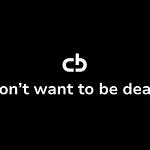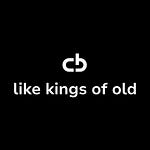Spanish Fork, Utah 84660
September 11, 1996
Our devout Mormon town awoke to an ordinary sunrise. By nightfall, everything would change.
I grew up on Spanish Fork’s tractor-churned streets. In 1996, our small town was a Grandmother’s quilt of alfalfa fields and Larry’s Barber Shop on Main. Our community’s pulse ticked to Sunday services and harvest moons.
That warm September night, however, a demonic spark ignited, tearing our sacred fabric to shreds.
Months earlier, while we unwitting townsfolk spun our well-worn Donny & Marie cassettes and wove our simple lives, a rebellion had been inadvertently invited to storm our dusty fairgrounds.
Rage Against the Machine, with their fists-up anthems of defiance, had slipped in like a match struck in parched grass. The fairgrounds manager later admitted it was an honest mistake: someone called asking about dates, he said yes, and somehow a contract got signed. He claimed he'd never heard of the band.
Who thrust this abomination into our carefully curated world? That mystery endures, as slippery as a songbird in the Utah Valley cottonwoods.
Word spread like wildfire through Spanish Fork’s pews and porches, tongues clucking in that classic small-town telegraph. Some blamed the fairgrounds manager, others our dear Madame Mayor, a title we cherished alongside our “Pride & Progress” logo.
No one would be held responsible. Like the JFK yarns swapped over Larry’s hot lather, the more we learned, the more questions arose, conspiracies lingering like embers under a freshly smothered campfire.
Those embers fueled weeks of unrest, the most contentious in Spanish Fork’s history. It was as if Lucifer himself had been invited to preach blasphemy to our youth, urging defiance where devotion reigned. A rally was organized to raise more than $80,000 to buy out the heathen band’s contract, a desperate bid to preserve our hallowed streets and shield the innocent.
An inevitable exchange transpired between a group of ne’er-do-wells and the God-fearing rallygoers. “Let the majority rule,” the rally organizer cried, but the teens slipped away, laughing, rumored to be bound for our town’s non-existent liquor store to smoke Marlboro Reds and spin skateboard tricks past curfew. A frightened woman told an intrepid news reporter on scene, “I got a brother coming down with some dogs, and hopefully that’ll scare ‘em away if they decide to do anything.”
Fear and loathing reached their peak on the Sunday before the concert when a warning echoed from my church’s pulpit. Blinds were to be shuttered, earmuffs donned, doors barred against the unholy clamor. A shadow had fallen over our once clear streets, heavy with the ominous sound of forbidden chords that would soon explode out of a Fender Telecaster.
Even as an 11-year-old, I’d long since learned to heed such edicts from the elders. From that same pulpit, I was taught Satan created The Simpsons and MTV was nothing but porn.
When the night of the concert arrived, over 8,000 hooligans descended on our peaceful town, instantly doubling our population. The fairgrounds weren’t too far from my house. I didn’t witness the madness, but old-timers swore the moon bled red the moment the band hit the stage.
I sheltered under my bed inside the room I shared with my older brother. While praying in a fetal position, with the faint sound of drums and electric guitars in the distance, I heard my brother say, “I bet there’s a sick mosh pit going on right now.”
I began to cry.
Exhaustion must have claimed me; I woke to tear-crusted cheeks and morning light, crawling out to check if school attendance was required post-apocalypse. My brother was already up, cranking a Rage track on our Magnavox CD player, oblivious to the ruin.
“Some of those that work the forces are the same that burn crosses,” lead singer Zack de la Rocha snarled, looping into “Killing in the Name!” My brother headbanged like it was just another Tuesday, prepping for school as if our Eden hadn’t tasted forbidden fruit.
I paused, listening. The riffs captivated me, the instrumentals appealing to sharp musical tastes developed over six months of grueling piano lessons. But the words? An endless snarl: “And now you do what they told ya... now you’re under control.” Then, pardon my French: “F— you, I won’t do what you tell me!” I get what all the fuss is about, I thought.
In truth, the concert played out as concerts often do. A smattering of underage drinking tickets, a few out-of-towners urinating on lawns, and a fair amount of reefer wafting in the air. An ordinance was passed soon after, slamming the fairgrounds shut to all future concerts. To this day, only fairs, rodeos, and 4-H shows grace the venue.
From that day on, I began eyeing grown-ups' intuition with a squint. We’d been promised mayhem and blood-stained streets, but all we got was a traffic jam and urine-caked lawns. It was an important night.
It was a night of rage.






